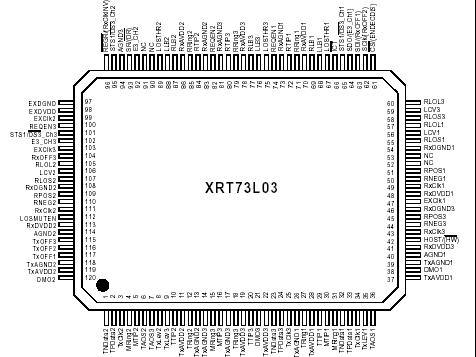XRT73L03: Features: • Meets E3/DS3/STS-1 Jitter Tolerance Requirements• Full Loop-Back Capability• Transmit and Receive Power Down Modes• Full Redundancy Support• Contains a 4-Wi...
floor Price/Ceiling Price
- Part Number:
- XRT73L03
- Supply Ability:
- 5000
Price Break
- Qty
- 1~5000
- Unit Price
- Negotiable
- Processing time
- 15 Days
SeekIC Buyer Protection PLUS - newly updated for 2013!
- Escrow Protection.
- Guaranteed refunds.
- Secure payments.
- Learn more >>
Month Sales
268 Transactions
Payment Methods
All payment methods are secure and covered by SeekIC Buyer Protection PLUS.

 XRT73L03 Data Sheet
XRT73L03 Data Sheet







